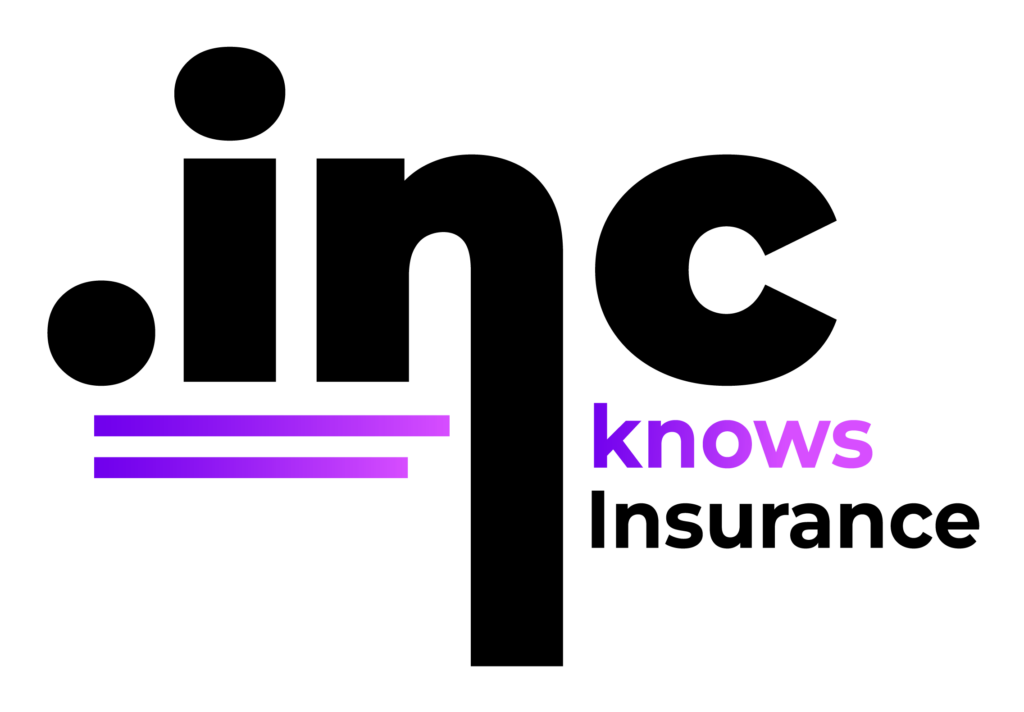GENERAL LIABILITY
COVERAGE
General liability Coverage offers broad coverage for businesses, protecting against lawsuits for bodily injury, property damage, and advertising injury. It's essential for safeguarding your business from unforeseen risks and liabilities.
Choose your primary industry to get started:

General Liability 411
As you navigate the complexities of running your business, General Liability Coverage provides vital safeguard. When faced with allegations of harm or loss, legal action can result in substantial defense costs and damage payments, potentially jeopardizing your business’s survival. By having General Liability coverage in place, you will ensure the resilience of your enterprise amidst unforeseen challenges. Here’s an overview of this essential protection:
What is General Liability Coverage?
General Liability Coverage shields your business assets by covering legal expenses and damages for covered claims, up to your policy limit. Despite operating your business with diligence, accidents are inevitable. Whether a customer sustains injuries on your premises, your product malfunctions and causes property damage, or a competitor alleges copyright infringement, such incidents can trigger claims and lawsuits against your business.
Key Coverage Areas
- Premises liability coverage: Safeguards against costs stemming from injuries sustained on your business property.
- Products liability coverage: Protects against expenses arising from property damage or personal injuries caused by your products or services.
- Personal and advertising injury liability coverage: Shields against costs related to various issues such as slander, libel, copyright infringement, and wrongful eviction, arising from your business activities.
Is General Liability Coverage Necessary
Though not legally mandated in most cases, General Liability Coverage offers critical protection against potential financial devastation resulting from lawsuits. It facilitates smoother business operations and can be required in various scenarios, such as contract signings, licensure applications, or vendor agreements, particularly by large organizations or certain professional sectors like plumbing or electrical services. Property management firms may also demand proof of General Liability coverage before leasing space to your business.
How to Obtain General Liability Coverage
General Liability policies can be procured as standalone coverage or as part of a comprehensive Business Owner’s Policy (BOP). An agent can tailor your coverage to address your specific business risks, guide you through policy setup, and impart valuable business practices to minimize unnecessary claims.
Factors Affecting Coverage Costs
Several factors influence the cost of General Liability Coverage , including your business type, unique coverage requirements, claims history, business size, and location. Industries with higher risk profiles or frequent claims history may face higher premiums, emphasizing the importance of assessing your coverage needs meticulously.
By securing a General Liability insurance policy, you strengthen your business’s financial security and resilience against potential legal challenges, ensuring continued growth and stability.
One of our agents will help you understand and find the right policy that meets your needs.
Why Inc Agents Are Your Small Business Partner
Small businesses stand to benefit significantly from having robust general liability coverage. However, navigating the complexities of selecting the right coverage can be a challenging task for many small and medium-sized enterprises. At Inc, our agents make the process seamless by taking the time to comprehensively understand your specific requirements and budget constraints. Only after gaining a clear understanding do they embark on finding the most suitable general liability coverage for your business.
This personalized approach comes at no cost to the business owner, and it extends far beyond the initial introduction. Your dedicated agent becomes your ally in navigating the realm of general liability coverage and insurance plans. They remain a reliable resource, available when you need assistance, allowing you to concentrate on what matters most – the success of your business. Trust us to handle the intricacies of general liability coverage, so you can focus on steering your business towards its goals.
Worst case scenario? Bring it on. General Liability can help cover a
wide range of risks.

Slip-and-fall injuries
Provide financial help after some business accidents or mistakes

Property damage
Offer protection for your business, property and employees

Legal fees & defense costs
Provide financial help after some business accidents or mistakes

Medical payments
An employee bad-mouths a client online and the client sues you.

Reputational harm
An employee bad-mouths a client online and the client sues you.

Advertising injury
An employee bad-mouths a client online and the client sues you.
Learn more about General Liability insurance coverage:
General liability business insurance can provide financial protection for some of the most common accidents at a business.
It can help if someone other than an employee gets hurt and your business is at fault. This is called “bodily injury.”
General liability insurance coverage can also help pay for repair or replacement costs if you accidentally damage property that doesn’t belong to you.
And if you’re accused of reputational harm (libel or slander), false advertising (advertising injury) or copyright infringement, your insurance policy can provide coverage for that, too.
It’s one of the most frequently purchased types of business insurance by small business owners because of the broad protection it offers.
This type of coverage is also sometimes called “business liability insurance,” “commercial general liability (CGL),” “public liability” or “liability insurance.” For the sake of simplicity, we’ll just call it general liability in the details below.
General liability insurance coverage can help protect you from unexpected expenses related to many of the most common types of accidents that can affect your business and lead to lawsuits, such as:
Injuries to people who are not your employees (bodily injury)
Damage to another person’s property (property damage)
Court and legal fees
Medical payments
Advertising harm
Accusations of libel or slander (personal injury or reputational harm)
If you’re involved with any of these business risks, our general liability claims process could provide financial help if it is a covered event.
Learn more about what general liability covers.
General liability is included in many business insurance packages because it can help cover the risks that many small business owners face every day.
It’s not typically required by law, but some clients and agencies could ask you to have a certificate of insurance before they work with you.
Here are some examples of how different types of businesses are protected from liability risks with a commercial general liability insurance policy:
Construction trades
Artisan contractors and other construction professionals are often required to have general liability insurance to get professional licenses or work on certain jobs. That’s because there’s a risk of injury to other people and property damage in the work they do.
Restaurants and food service
Slip-and-fall accidents are a risk that food business owners worry about. A general liability policy can help cover medical payments and lawsuit expenses. Some businesses can also add liquor liability or workers’ compensation for more coverage.
Retail and e-commerce
Retail business owners can also benefit from the protection GL provides for customer injuries. NEXT policies also includes some protection for product liability coverage.
Fitness professionals
Personal trainers might need to be a policyholder for some professional certifications, and it can be required if they work at a gym.
Cleaning businesses
General liability business insurance can protect cleaners from financial losses if they accidentally break or damage property at a job.
If you want to rent commercial property you might also be required to have coverage as part of your commercial lease.
We’ve already looked at some of the important protections business liability insurance can offer after an accident.
Now, let’s look at some benefits it can provide in your day-to-day (hopefully accident-free) operations.
It can help you get more jobs
Having business liability insurance shows clients that your business is trustworthy and that you will take responsibility for your mistakes. That’s why some business owners advertise that they are insured.
It could give you a competitive advantage if a potential client has a choice between your business and another business that doesn’t have insurance.
Many larger clients also require coverage before they’ll sign a contract with you.
It keeps your business in compliance
Some states and cities will only give you a business permit if you have an active general liability insurance policy and a certificate of insurance.
You might be required to keep your insurance active if your business is certified or accredited by a professional organization.
Your commercial lease might require it
Property owners may ask to see your certificate of insurance if you plan to lease commercial space.
Business liability is often required because it shows you will have financial protection that can help cover expenses related to customer injuries at your leased space.
It lets you focus on growing your business
Business liability insurance can give you peace of mind.
You can have protection if a client trips and falls or you accidentally damage a customer’s expensive property.
General liability can provide important financial protection for your business after an accident, but it usually doesn’t protect businesses from all the risks they face.
It’s important to consider other types of coverage when exploring your business insurance options and deciding on your risk management plan. For example:
Other types of liability coverage
Professional liability insurance can help protect your business from losses after a professional mistake.
Depending on your industry, you might also benefit from product liability insurance (retail) or liquor liability insurance (food service).
Workers’ compensation
Most states require workers’ compensation if you have employees. It can help cover medical expenses and lost wages after an employee’s workplace accident.
Learn more about workers’ compensation insurance.
Commercial property insurance
This coverage can help pay for a replacement or repair for your business property. General liability only over property that doesn’t belong to you.
Learn more about commercial property insurance.
We’ll walk you through the differences and similarities between General Liability insurance and other types of business insurance policies to help you make the best choice for your business.
- General Liability insurance vs Professional Liability
- General Liability insurance vs Business Owner’s Policy
- General Liability insurance vs Workers’ Compensation
- Liability insurance vs Commercial Property insurance
Compare other business insurance policies
If you don’t find the answers you’re looking for, our licensed insurance advisors are standing by to help.
Is General Liability insurance required by law?
General liability insurance is often the first type of coverage purchased by new business owners, but it’s not typically required by law.
However, some agencies might require coverage before issuing a professional license or permit. This is common in construction.
Clients might also ask for proof of insurance before they will work with you.
What is the difference between Professional Liability and General Liability?
This question comes up a lot. That’s why we wrote a detailed overview of general liability vs. professional liability.
Here’s a quick overview:
Professional liability insurance and general liability insurance offer similar benefits but there is one major difference — professional liability insurance can help cover professional mistakes and accusations of neglect. It’s often related to advice you provide to a client or customer, not accidents in the workplace.
General liability insurance coverage can provide financial protection for accidents that are more physical, such as property damage and injuries involving people who are not your employees.
Learn more about the difference between professional liability and general liability.
What is General Liability aggregate?
General liability aggregate is a common insurance industry term you’ll run into when exploring options for this coverage.
It’s the maximum amount of money an insurance company will pay out during your policy period, which is usually one year.
If your business has expensive claims, you might hit your aggregate limit. In that case, you would be responsible for paying out of pocket to cover the remaining expenses.
Note that the aggregate limit is different from the “per occurrence” limit, which is the maximum amount your policy pays out per claim within the term of your policy.
For example, if you have a general aggregate liability limit of $300,000 and you’ve already made three claims in your policy term (usually a year) for $100,000 each, you’ve reached your aggregate limit and your insurance company won’t cover any additional claims.
It’s important to know your aggregate limit when you purchase general liability insurance. If you exceed your limit during your policy term, you will be responsible for paying for any expenses out of pocket that exceed the limit.
Learn more about aggregate limit of liability.
Does General Liability insurance cover property damage?
General liability insurance can cover expenses related to property damage, but only to property that does not belong to you.
Commercial property insurance can help protect the physical items you need to operate your business:
- Inventory
- Business equipment
- Furniture and furnishings
- Physical structures.
A business owner’s policy (BOP insurance) combines general liability insurance and commercial property insurance into one package that is usually less expensive than buying the coverage separately.
Learn more about BOP insurance.
Does commercial General Liability insurance cover automobile liability?
General liability insurance does not cover automobile liability or any expenses related to business or personal driving.
Commercial auto insurance can help cover expenses If you drive for business reasons:
- Injuries if you are responsible for an accident
- Property damage to other people’s property
- Repairs for your vehicle
- Towing and rentals if your vehicle is damaged
Learn more about commercial auto coverage.
Does commercial General Liability insurance cover theft?
General liability insurance doesn’t cover the theft of your own possessions but it might cover the theft of customer property.
If you’re repairing a garage door for a homeowner and someone steals her bike while you’re out back, general liability could help pay for a replacement.
But if any of your personal or business items are stolen, you won’t be covered without additional insurance.
You can bundle tools & equipment insurance with your NEXT Insurance general liability coverage if you are a contractor or own a cleaning business.
Will General Liability insurance protect me if my tools get stolen?
If you’re a contractor or own a cleaning business, tools & equipment insurance can protect your belongings if they are damaged or stolen.
Commercial general liability alone won’t provide tools and equipment coverage.
You might consider adding tools and equipment coverage if you work frequently at different locations because it will provide financial protection for your equipment wherever you go.
For example, if there’s a water leak at the new house you’re building and your power tools get soaked, your insurance could help pay for new tools.
Learn more about tools & equipment insurance.
Does General Liability insurance cover employee injuries?
General liability insurance can help pay for expenses if your business is accused of causing an injury, but injuries to you or your employee are not included.
Workers’ compensation insurance can help pay for medical expenses and lost wages if an employee is hurt on the job.
Most states legally require you to purchase coverage as soon as you hire an employee. It also provides benefits for business owners if they get hurt on the job if they purchase optional business owner’s coverage.
Learn more about workers’ compensation insurance.
Is General Liability insurance tax deductible?
General liability insurance premiums can typically be deducted from your taxes. It’s important to consult with a licensed accounting professional to make sure you qualify.
The IRS categorizes payments you make for this type of insurance to be both an “ordinary and necessary” business expense so be sure to keep a file of how much you pay every year for your policy.
How much General Liability insurance do I need?
Our small business insurance isn’t one-size-fits-all. Each business is unique and has different insurance needs.
The coverage you need depends on several factors, including:
- The type of work you do
- How many employees and subcontractors you have
- The level of risk your company faces
- The state where you work
- When you complete an instant quote online with Next, you can review options and adjust limits to your preference.
When will I get my policy documents and proof of insurance?
With NEXT, it can take less than 10 minutes to purchase coverage and you’ll have instant access to policy documents and your certificate of insurance (COI).
You can access your documents and COI 24/7 online or in the NEXT app for iPhone or Android.
Learn more about our digital certificate of insurance.
How do I make a General Liability insurance claim?
You can file a claim anytime and from anywhere online or in the NEXT app.
You’ll be asked to share the details of what happened and to provide relevant photos and documentation. We strive to make claims decisions within 48 hours so you can get back to focusing on your work.
Check out our claims page for more details.
How quickly are general liability claims resolved?
Often, claims decisions are made within 48 hours, although some claims require more time.
The specific details of the claim, how bad the damage is, how many people are involved, the availability of information and other factors all contribute to the decision process.




